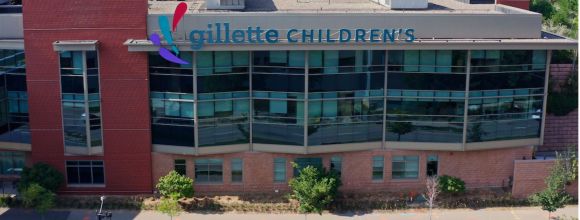What Is a Sleep Study?
A sleep study (also known as polysomnography test) is an overnight study to evaluate sleep disorders in children.
During a sleep study, pediatric sleep medicine specialists monitor a child while they’re sleeping and examine carbon dioxide level, electrocardiographic activity, blood oxygen level, brain wave pattern (through video electroencephalogram), eye movement, airflow through the nose and mouth, and movement of respiratory muscles and limbs.
Collecting information while a child sleeps provides a better understanding of what’s causing sleep issues so that a treatment plan can begin to help your child (and you!) get a better night’s rest.
Who Benefits From a Sleep Study?
Although any child can have trouble sleeping, if your child has a complex medical condition, they are at greater risk for sleep disorders. Often, sleep problems can complicate health issues for children.
Sleep problems affect about 30 percent of children who have:
Attention deficit hyperactivity disorder.
Craniofacial conditions.
Other neurologic conditions.
The specialists at Gillette Children’s can determine whether your child’s sleep issues are being caused by seizures, a sleep disorder, or in some cases both.
In addition to working with children who have disabilities, the Gillette team cares for typically developing children who experience sleep disorders. Poor sleep can affect your child’s growth, attention, learning, social behavior and other abilities.
Sleep disorders we treat most often at our Sleep Health Clinic include:
Sleeping at the wrong times (circadian rhythm disorder).
Excessive sleepiness (hypersomnolence).
Trouble falling or staying asleep (insomnia).
Night terrors.
Unnatural behaviors during sleep (parasomnias), such as walking or talking.
Restless leg syndrome.
Preparing for Your Visit
You’ll need to come with your child to provide routine care during an overnight sleep study—for example, give regular medication or care for a feeding tube. You can sleep in the same room as your child during some studies if it won’t interfere with the test, or you can stay in a nearby room.
You can watch this video with your child to help them understand what to expect with a sleep study test.
You can also share All About Your Sleep Study (PDF), a booklet to help you and your child get ready for an upcoming visit.
A week before your child’s appointment, we’ll call to confirm the sleep study and answer any questions you have. We might ask you to fill out a sleep health log (PDF) before an overnight sleep study.
What to Bring
Bring everything your child might need for an overnight stay at a hotel or someone else’s home, including:
- Medicines in their original containers.
- Nutritional supplies and formula.
- Medical devices, including tubing for suctioning and/or the mask used with a CPAP/BPAP machine, however, you do not need to bring the machine itself.
- Pajamas.
- Slippers.
- Toothbrush and toothpaste.
- Hairbrush.
- Favorite blanket, pillow and/or stuffed animal.
- Favorite books or videos to enjoy before going to sleep.
What to Expect During a Sleep Study
Sleep studies are safe and painless. The Sleep Health Clinic features soundproof and lightproof rooms, along with state-of-the-art equipment to monitor sleep. Our goal is for your child to feel comfortable and safe.
Getting Ready
Technologists—some of whom are also respiratory therapists—help your child get ready for a sleep study by placing sensors around the head to record electrical currents in the brain. Placing sensors on the body doesn’t hurt. Other equipment measures breathing, heart rate, eye and limb movements, and oxygen levels. We use this technology to watch for breathing issues, drops in oxygen level, or leg movements that might be disrupting sleep.
During the Study
Clinic rooms have hospital beds, rather than traditional beds, to maximize safety during sleep. Suction and oxygen equipment, as well as lift systems, are available.
Sleep technologists monitor your child overnight and report the results to our sleep medicine physicians. At least one sleep technologist monitors your child all night. (Most other clinics, in contrast, have one technologist for every two patients.)
In some cases you can sleep in the room with your child. If you’re not able to sleep in the same room, you will be able to sleep nearby and call to check in anytime during the sleep study.
If your child has a complex condition, we have convenient access to Gillette's Pediatric Intensive Care Unit should an urgent situation arise.
In most cases, the sleep study ends at 6 a.m. and discharge takes place at 7 a.m.
After a Sleep Study
After a pediatric sleep study, a sleep technician reviews the data, identifies issues and makes recommendations. You’ll hear the sleep study results of your child’s sleep study from your child’s doctor and will discuss the next steps to improve your child’s sleep patterns.
Integrated Care
At Gillette you have access to one of the nation’s only sleep medicine programs designed specifically for children who have disabilities and complex conditions. We are accredited by the American Academy of Sleep Medicine.
In addition to working with sleep medicine experts, your child’s comprehensive treatment plan might have you working with other specialists, such as neurologists and pulmonologists. If your child’s sleep issues continue into adulthood, your family can receive continued care through Gillette Adult Clinic.
Locations
All sleep studies are available at our St. Paul Campus.
See all Gillette hospital and clinic locations.

